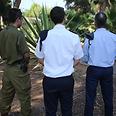
IDF doctors say their presence on the field is crucial
Army doctors play two parts in any military operation: Combatant and medicine man. Now they tell of their complicated double job, call for a mandated extra hour of sleep
Lieutenant Dr. Eran, 28, who recently finished medical school, has participated in dozens of secret operations of elite Navy units far from Israel's borders. "For every open combat doctor position, there are five guys wanting the job, and they know they'll have to go through serious training; for example, a Shayetet 13 doctor will have to know how to dive."
Related stories:
- Senior doctors among hundreds of olim from US
- New olim: IDF, here we come!
- IDF forces kill suspect Palestinian near Gaza border
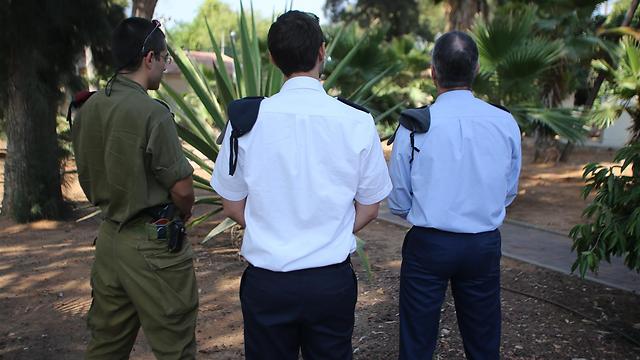
In the air, at sea and on land. The three doctors (Photo: Yaron Brener)
The same goes for Captain A., the doctor of the Duvdevan elite unit, and Lieutenant-Colonel Dr. Yuval, a fighter pilot and commander of the Air Force's medical unit.
Despite their differences of opinion, the three agree that doctors must also be combatants, and that this can mean the difference between life and death: Eran tells of an incident where paramedics on board of the cruiser were able to evacuate an injured soldier faster, thus improving his prognosis.
Pilots can have laser surgery
"Pilots are a complicated bunch, and the fear of being grounded can sometimes stop them from giving crucial medical information," says Dr. Yuval. "That is why we are on the field, and we do an extensive series of tests for each soldier, focusing on their eyes, heart and lungs."
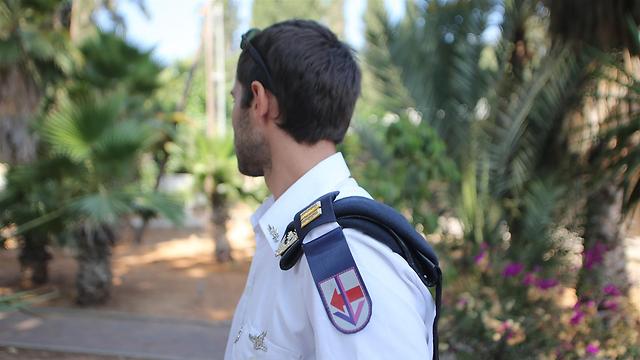
Lieutenant Dr. Eran, (Photo: Yaron Brener)
Dr. Yuval says that policies have changed over the years: "Before, a soldier with even the slightest heart defect couldn't be a pilot," he says, "now we sometimes allow it. People who have eye problems can have laser surgery—at their own expense. Still, about 35% of those who don't make it through pilot training drop out due to medical problems." Dr. Yuval says there are 15 to 20 incidents where pilots experience physical problems during flight; a low percentage when compared to the thousands of flights held each year.
Dr. Eran says that the majority of complaints are related to sea sickness and involve stomach aches and diarrhea as well as many cases of laryngitis in the winter. "We need to keep soldiers resting in a situation like this. We had a soldier who didn't tell us he has asthma, and he had an attack mid-sea. We have a solution to sea sickness in the form of a patch that releases stabilizing material"
Elite unit Duvdevan's doctor, Captain Dr. A., also noted typical medical complaints. "Most of the complaints are about orthopedic problems," he says, "although the high motivation makes soldiers hide their pain. That's why we are there—so the commanders can notice if anyone is limping in the back of the troop."
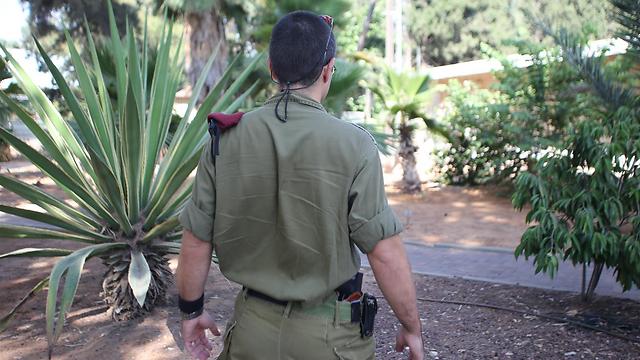
Captain Dr."A" (Photo: Yaron Brener)
Captain Dr. A. and his peers explain that their presence in the front line is crucial. "Now, every mission has to be approved by us," he says. "I've stopped hikes due to heat in the past, and that prevented a lot of damage."
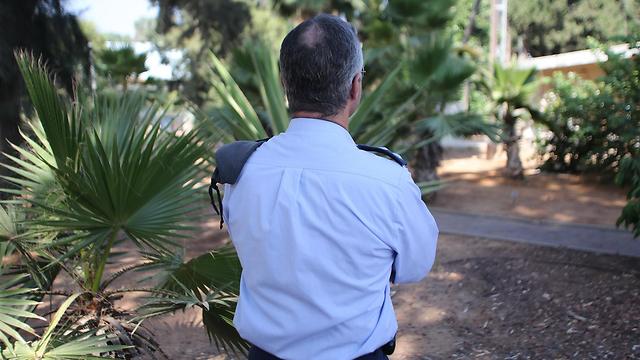
Lieutenant Colonel Dr. Yuval (Photo: Yaron Brener)
All three doctors, incidentally, support the Medical Corps' recommendation of an extra hour of sleep for soldiers. "It absolutely makes a difference," says Dr. A.. "We need to be there on the field."
"If a pilot hasn't slept or ate properly it can absolutely affect his abilities in the air," says Dr. Yuval. "Recently we started giving out energy bars and they are excellent in keeping a balanced diet which is so crucial to excellent performance."
- Receive Ynetnews updates directly to your desktop










